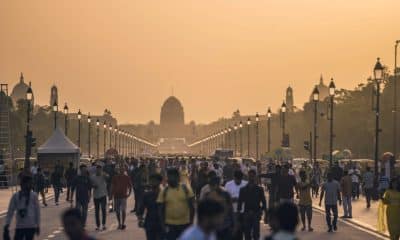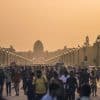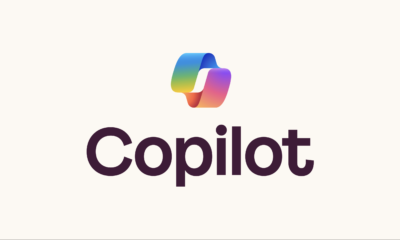Travel
COVID-19 pandemic changed travel regulations and preferences: TravClan CEO
After the temporary slowdown and disruptions, we are now moving rapidly into a new normal of travel operations, says TravClan CEO Arun Bagaria. He believes future travel is going to be digital driven.
In an exclusive interaction with MyBigPlunge, Bagaria gives an insight as to what the post-pandemic world looks like for the travel industry and the challenges that comes with it:
What challenges has the travel sector faced?
After the temporary slowdown and disruptions, we are now moving rapidly into a new normal of travel operations. Travel regulations as well as preferences have changed significantly due to the pandemic. One of the major challenges is around infrastructure and skilled human resources. The future of travel is going to be digital-driven. Hence, travel agents and firms that don’t digitize their operations or take into account the needs for social distancing and hygiene protocols will struggle. For instance, there will be greater demand for private rooms over shared accommodations and options around easily accessible, experiential yet offbeat destinations.
Considering this, the need of the hour is a technology driven revamp of travel services. There is also a need for adequate promotion and marketing of travel services. India has incredible potential, and the fact that we saw over 10 million foreign tourists in 2019 underscores this. However, in terms of image building and marketing, we need to revamp the efforts and need to highlight the diversity and beauty of India.
How can the challenges be tackled?
The solution to most of these challenges lies in technology and collaboration. The Indian travel industry especially the smaller players need to focus on platform ecosystems that offer them ability to consolidate and collaborate. An average travel agency would find it difficult to compete with leading aggregators and online travel platforms. However, they need to have the ability to match or outperform the experiences provided by the major brands or else they will struggle to retain their market presence. This is where B2B travel marketplaces have an incredible potential. Such service providers can offer a world-class digital platform for the small agencies, individual travel agents and travel business owners to create a strong online presence for themselves. Backed by marketing expertise, integrated communication and access to great prices for hotels, flights and other services, the B2B travel marketplaces are going to be among the core components of the travel ecosystem in the years ahead. Technology can also play a great role in skilling and training of the workforce as online courses in linguistics, hospitality and other relevant topics can be conducted to overcome the shortage of qualified resources. By going online, travel agencies can market their business better and generate more leads than the conventional offline mediums.
How can TravClan overcome these hurdles?
At TravClan, our brand promise is to empower travel business with technology and help address the trust gap in the industry. We are a disruptive B2B Travel Platform bringing in a technology driven transformation in the US $100 billion offline travel market in India and South East Asia. We offer the latest and most potent technologies and tools to enable travel service providers overcome challenges related to marketing, procurement as well as technology support. As individual players, it can be extremely difficult as well as costly for the travel agents to build their fully functional portals with online domestic and international payments mechanisms and also to procure accommodation and air ticketing prices that can help them compete with major international OTAs.
Our main focus is on empowering the traditional offline small agents and bring them online by providing holistic support. Agents joining TravClan platform can get free fully functional websites with chatbot integration, customizations, ability to directly sell flights/hotels, news updates, facility to receive or make online payments internationally and various other benefits. They get the best B2B pricing through the App. Thus, we have built a collaborative marketplace model that helps suppliers meet travel agents and build a thriving online ecosystem for the global travel industry. We also provide marketing support such as lead generation, creation of website and seamless digital communication as well as payment integration options. Using the TravClan platforms has enabled travel agents to streamline and optimize their operations, deliver superior client experience and generate more leads seamlessly.
Do you think the government and associated stakeholders should come up with policies that can help the travel sector pick up from 2020 Jan?
The central and state governments as well as tourism bodies and private sector players must come together with policies and processes related to revamp of travel. The need is to build a dynamic, cohesive and responsive ecosystem that ensures development of the right facilities and support for the global tourists. Safety and hygiene have been two of the biggest challenges that make India lag behind even tiny foreign destinations despite the potential offered by India. This is where civic authorities need to put their weight behind the travel industry. We are witnessing a very strong churn this festive season and this momentum has to be sustained and further accelerated. Supporting the hospitality service providers, transportation operators and others through financial inputs, tax reliefs and other subsidies is also going to be a much-needed boost.
Also Read: India rejects WTO draft fishery subsidies agreement
Will the travel sector be hit by high airfares? How will it be addressed?
Airfares are rising due to various reasons such as the surge in fuel prices and the additional costs imposed by the pandemic protocols. However, the impact is not going to deter the travellers from flying. Even if it will take sometime for the air travel sector to reach it pre-pandemic levels, flights are already going full. With the scale of operations increasing, the cost-per-seat of operations for the airlines will go down and that will help mitigate the impact of rising fuel prices. Also, as we have already seen, safety is the top priority for the travellers now and trends indicate a willingness to pay a little extra for a hygienic and smooth travel experience.
Now that countries are opening their borders and international air travel has reopened, what does travel look like in the post-pandemic world?
The resumption has started and by the end of this year or early 2022, vaccination of majority of the world’s population will be completed barring some African and South American regions. In the US and Europe, flights are already operating at near capacity and India will also now allow full occupancy on board. Thus, the biggest impediment to global travel which was the lack of flight operations is being done away with. We will see some continuation of COVID-19 protocols due to the fact that many countries are now seeing it as an endemic instead of pandemic. This makes it imperative to be on guard against the infections, but continue with travel and services as normal. As evident from the projections about Indian tourism sector, most global travel destinations will start experiencing strong growth by 2022.
What does 2022 look like?
The year 2022 will be important for the travel industry. Domestic tourism in India has already picked up, and is going to be the biggest catalyst in the growth of the industry post-pandemic. As per estimates, the Indian travel industry will grow handsomely from 2022 onwards to reach INR 35 trillion by 2029 and account for over 9.2% of the GDP. There is plenty of potential in areas such as offbeat tourism, cultural and medical tourism as well as experiential and educational opportunities for foreign visitors to the country. Even the international tourist footfall which was nullified last year due to the pandemic is expected to grow almost three times and cross the 30 million mark by 2028.
Vaccination across India is going strongly and 2022 will see a free flow of tourist movement. The Government of India has announced a scheme to offer free month-long visa to 5 lakh tourists until March 31, 2022. This will be a major catalyst in the revamp of the Indian travel sector. Overall, after two consecutive years of nearly identical lockdowns, the forecast is great for the year coming up.









































Pingback: For IndiGo, bookings are 90-95% of pre-COVID levels.